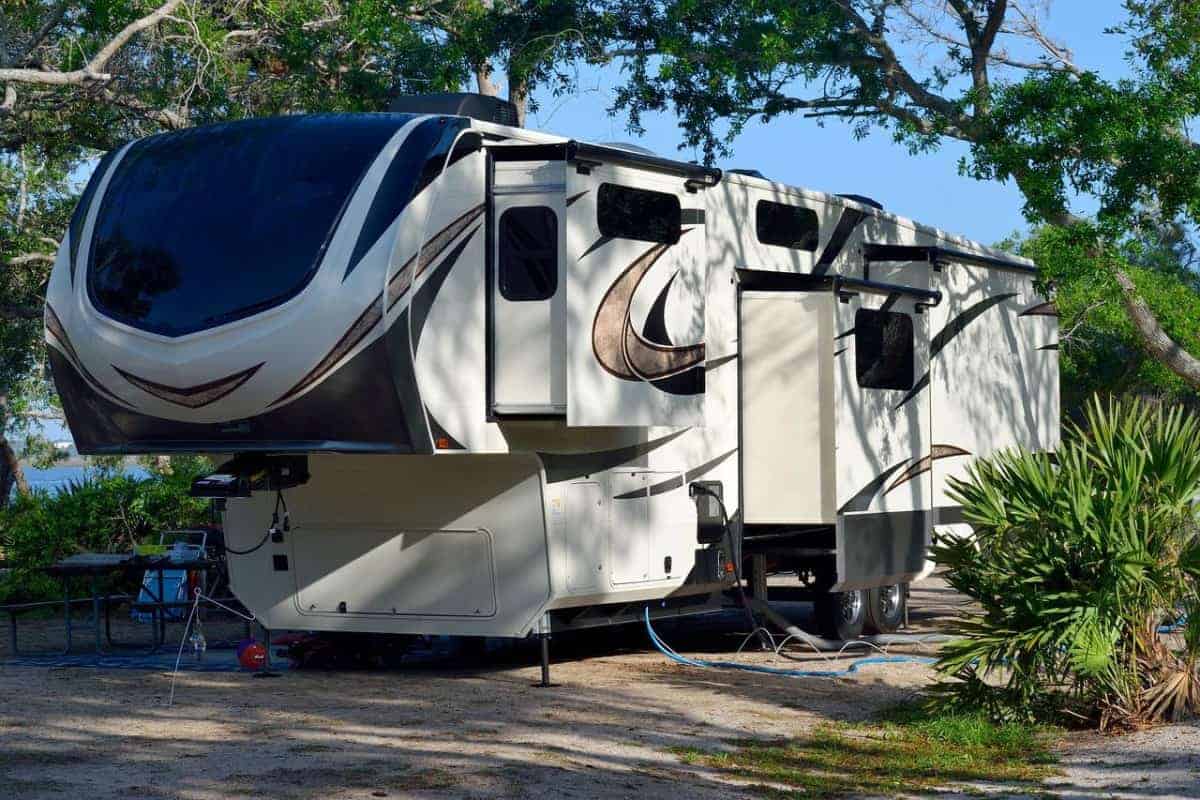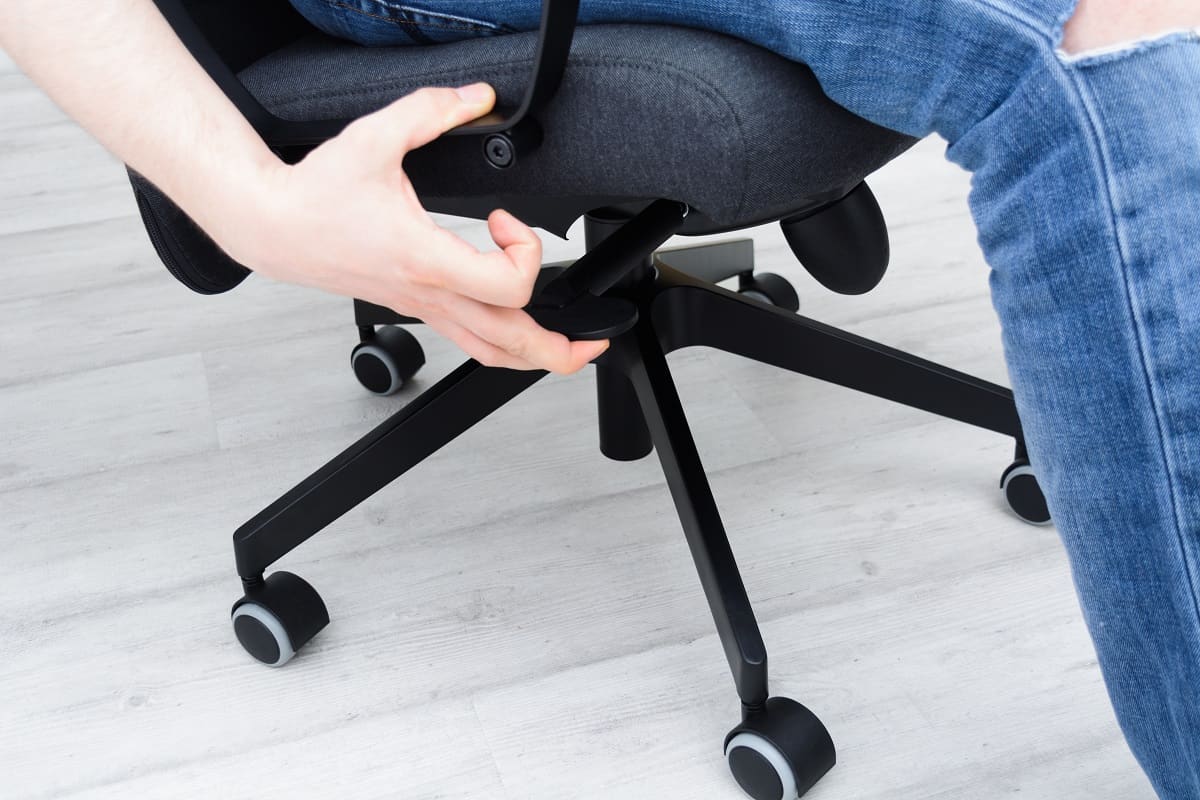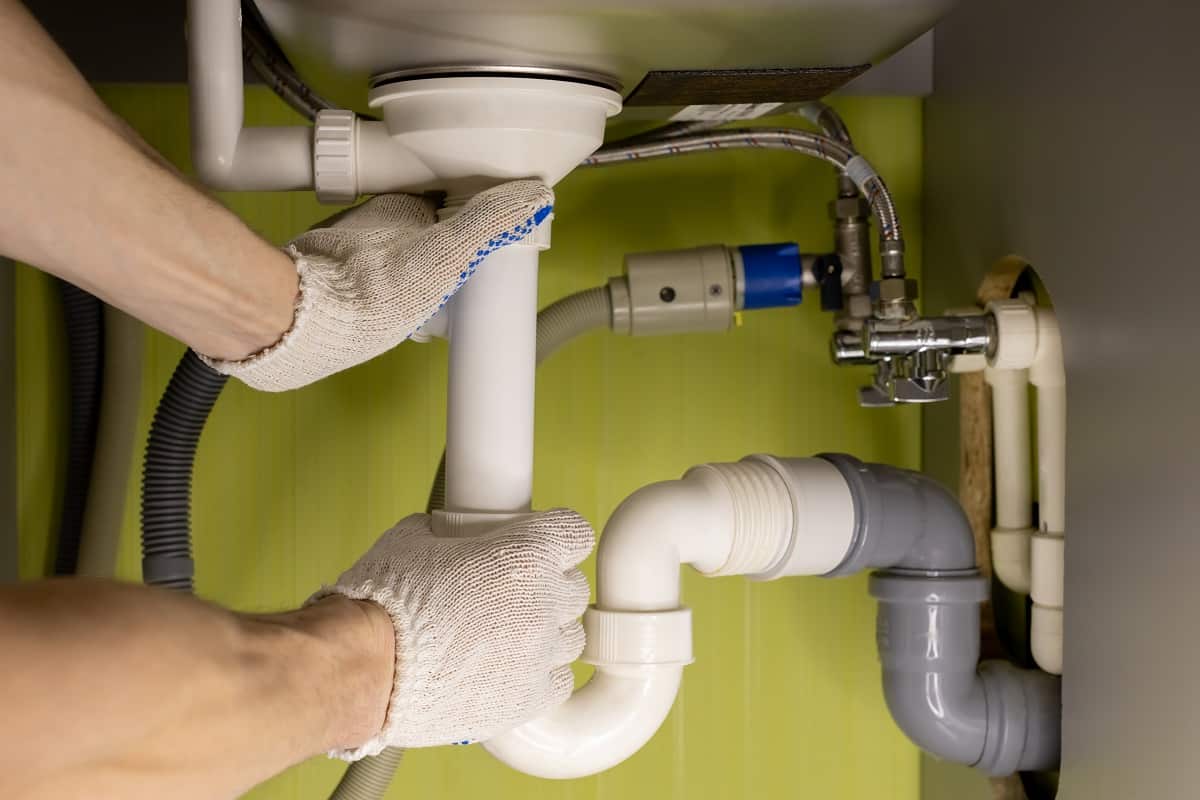If you’ve ever been into PC and other tech gadgets, you must know that computer has many parts that need to be compatible and seamlessly work together. The same goes with laptops, although you’re less likely to see someone build it from scratch. We want to use our laptops for a long time, but now and then, a hard drive or solid-state drive (SSD) can die, which is one of the most common malfunctions on PC.
If you’re covered by warranty, all you have to do is visit the tech store you bought it from and they’ll send it to the authorized service to swap the SSD or hard drive. But, what if your laptop is older than two years and now you have to finance it on your own?
You can either pay to have your SSD swapped or do it yourself if you’re tech-savvy. Still, choosing among hundreds of different brands can be overwhelming for people that don’t know much about each brand.
Fortunately, we wrote this guide to educate you on what to avoid when shopping for an SSD. Further on, we reviewed the 5 worst SSD brands that you can shop from in terms of build quality, durability, longevity, customer service, warranty, and other features.
Also, we’ll conclude this article with a compelling buying guide on brands and products you shouldn’t avoid and answer all the frequently asked questions on SSD brands to avoid. Continue reading with us, and you’ll find a few brands and products that are trustworthy and should be checked out.
SSD is a solid-state storage device that, unlike the hard drives that use magnets to store data use integrated circuits as a more reliable and faster method. In addition to their build, they are using flash memory which makes them significantly faster than hard drives.
SSDs store more power which leads to longer battery lives of the device. Hard drives have significantly lower access and transfer speeds so they’re reading and writing data all the time, SSDs don’t have to write it all the time thanks to their speed so they’re idling most of the time and saving battery life in the process.
Still, the main drawback of these devices is that they are expensive, although there’s been noticed a decrease in price over the last few years. Most laptops you can find on the market either boast a medium-sized SSD or come with both SSD and hard drive.
Although the price has decreased significantly and more companies are making SSDs, higher storage options also don’t come cheap. Also, different types of SSDs may be more robust or faster compared to the other SSDs. Finally, the price of SSDs is oftentimes dictated by the brand that sells them, which is why we’ll look into the different brands that make SSDs.
Things That SSD Brands to Avoid Have in Common
If you’re shopping for an SSD but you don’t know which brand is the best, here you’ll learn about what all SSD brands that you should avoid have in common. Here are the features that should be a red flag when choosing an SSD.
Weird Price
When it comes to SSD a price that is too low for a certain option may be a red flag, but so is the super-high price for certain storage options compared to other brands on the market. SSDs can be found anywhere from $30 for the 256GB option going up.
However, if the 1TB or 2TB SSD costs around $80 or lower, that can be a red flag that something is wrong with it, in the sense that it’s made out of cheaper materials and won’t last as long as some more robust models.
Low MTBF
Meantime Between Failures refers to how long is some component supposed to last before it starts breaking and malfunctioning. Even though SSDs are supposed to be more reliable than hard drives, failure can happen due to physical damage.
That being said, you should always aim for a good SSD that can support more than a million hours. Some options with less can also suffice for a decent year. Still, if you see that the MTBF rate for a certain SSD belonging to certain brands is lower than expected, you should consider avoiding it.
Poor Warranty or No Warranty
Warranty is a super-important feature for every SSD. However, it can’t be too long because SSDs have a lower lifespan compared to hard drives.
However, each company should have a decent warranty policy for its devices especially if they weren’t bought a long time ago and they were used reasonably without being dropped or suffering physical damage.
However, some brands that can’t be trusted can’t offer any kind of warranty. The general rule of thumb is that the SSD should last at least two years, which is why most decent companies have a warranty policy of two years for an SSD.
Some companies may offer even more while some would offer one year or less. Such brands should be avoided unless you’re 100% sure their SSDs are good.
Unresponsive Customer Service
One of the most frustrating things about building a PC is some parts not seating or working properly and the customer service is unresponsive. This most commonly happens with SSD brands which can be quite irritating for people who urgently need it to work and figure out what’s wrong.
Contacting via email or queries on websites or online shops can take too long to respond, while people on social media may not be experienced enough with the technical aspect of how each SSD works.
That’s why a good SSD brand should have phone support for most countries and live chat for those who can’t call due to their geographical location or some other issue.
They’re Not What They’re Labeled As
When you buy a 128GB or 120GB SSD it’s okay to see only 105-110GB of storage as that depends on the manufacturing processes and what kind of chip is used. However, if that number is significantly lower, that’s a sign that you’re being ripped off. The SSD storage is already significantly lowered for the same price as a hard drive, so you should at least get closely what you’re paying for.
Poor Thermal Protection
Most SSDs come with premium and durable components that will prevent overheating in case the SSD is located in a fan-less device or at least doesn’t have a lot of space to make enough airflow for the component not to overheat. This may not be the case for lower-quality devices.
5 Worst SSD Brands to Avoid
The features above should help you decide what are the worst SSD brands to avoid. Here, we set 5 SSD brands to avoid if you’re trying to get a great value for the price and a drive that will last you for years.
Disclaimer: This article is purely informational and doesn’t aim to defame or offend any manufacturers. It’s based on reviews of different models of solid-state drives and doesn’t discourage consumers from purchasing from these brands if they are willing to deal with the features that are not as satisfying as with the manufacturers we support.
KingSpec
- Why avoid it: A lot of users face problems with extending their warranty. The components are overheating and melting. Customer service could be better.
- Warranty: 3 years limited warranty
- Customer service: Could be better
Based on the price that this SSD manufacturer offers for different chips, KingSpec is neither a crazy cheap nor crazy expensive brand to shop from. The company offers different speeds, storage options, and NAND chip versions. For many users, this is a satisfactory brand that gets the job done.
However, if you’re a designer, developer, data scientist, or simply use your PC or laptop in heavy amounts, the lackluster features of this SSD can easily be seen. We’ll first detail that the components used in this SSD brand model are cheap, with NAND chips being severely outdated and made with poor practices. The NAND chips used in these models are years old.
Another thing that we mind about this brand is that Kingspec drives are quite slow compared to its competition. They may look fast and perform fast when it comes to meeting a certain demand, but they’re still significantly slower than their competition and barely cross the necessary bandwidth limit as opposed to the competition.
It’s worth noting that a lot of people had problems with customer service. Extending the warranty is practically impossible because the website often doesn’t accept the order ID to extend the warranty. Additionally, the customer service is slow to answer the questions that consumers have which feel quite discouraging.
Sabrent
- Why avoid it: Poor components and endurance, tends to overheat, and poor warranty.
- Warranty: 1-year warranty
- Customer service: Could be better
Sabrent sports super-fast and stylish NVme SSD models which are quick to grab the attention of most people who are looking for a fast SSD model to upgrade their desktop or laptop with.
Something that is correctly advertised about this brand is that it is ideal for those who are looking for large storage capacity that won’t be crazy expensive, as well as great speed bandwidth of over 7000MBs.
However, one of the biggest issues with this SSD model is the components that are inside of it. They are made out of poor materials and may not last long if your PC tends to heat up a lot.
Additionally, the warranty lasts only one year which is quite discouraging for those looking for a product that lasts. Something that many consumers reported is that the SSD dies soon after the warranty period expires.
Moreover, many people reported that their SSD came dead on spot and they never managed to get it replaced, although there are some exceptions where the customer service responded and had the SSD replaced. In general, it’s quite difficult to get the customer service to respond.
Adata
- Why avoid it: It comes with no software advertised to enhance the writing speed and has compatibility issues. Has problems with heating too
- Warranty: 2 years warranty
- Customer service: Could be better
Adata SSD is great for people who are restricted on budget and want to use a device that will be affordable and gets the job done along a large hard drive of two or more TB. However, there are certain problems with this brand.
Some customers complained of the advertised software feature which works together with the PC to increase the writing speeds. However, that wasn’t the case as the customer service is often saying that it’s up to the device and that many laptops are not compatible with this software.
Other issues include overheating which especially occurs in smaller laptops, although it doesn’t often happen. Other issues include faulty on arrival or dying pretty quickly once the warranty expires. The customer service can be quite difficult to contact, which is why many consumers advise on avoiding this brand.
PNY
- Why avoid it: Outdated chips and slow at times, problems with longevity
- Warranty: 3 years warranty
- Customer service: Decent
There can be a lot to be said about PNY solid-state drives. For some people, they could be the perfect SSD option to be used along with a hard drive or another, larger SSD. However, for some other people, using this SSD can be tiresome and slow. The writing speeds can suddenly lower down. Some models don’t use up-to-date chips which can be exhausting if you’re a developer or a designer.
On a good note, it comes with 3 years warranty and the customer service is decent so to say. If the SSD malfunctions, which oftentimes is the case because it has longevity issues, the customer service will either help you get it fixed or replace it with some other model.
SK Hynix
- Why avoid it: Slow speeds or slows down suddenly when the cache is full
- Warranty: 5 years warranty
- Customer service: Okay, but could be better
SK Hynix is an ideal entry-level SSD if you’re looking for a more affordable option or something that is not too demanding.
However, it’s quite slow, suddenly it can drop writing speeds far below the 500MB decent speed bandwidth threshold, which can be quite disappointing for people who are constantly programming or using design and 3D modeling software.
If you’re shopping for the website, it is designed so that you can’t read the ToS without accepting them first, which is a huge fault on the website. Sometimes the SSDs come dead on arrival.
However, the good news is that there is a 5 years warranty which means that if your SSD dies all of a sudden you can rely on the customer service to get it swapped. Still, it can be difficult to get them to respond.
Things to Look Into With Good SSD Brands
After learning what all bad SSD brands have in common and what those brands are, it’s time to introduce you to all the features that you should look into when shopping for the right SSD brand.
- Speed – Speed is one of the most important factors because most people go to SSDs because they have faster access speeds than hard drives. With that in mind, always consider speeding higher than 500 MB/s. Some brands measure their speed in gigabytes, which just shows how fast they can get.
- At least two years warranty – As we mentioned above, the two-year warranty should be the bare minimum for the SSD that will last for a long time. That being said, the best warranty option is that of 5 years. However, some brands offer up to 10 years warranty and some offer a lifetime warranty (which is mostly the same as offering a 10-year warranty.)
- Great Customer Service – When selling a technical, electronic component such as SSD, the company should sport patient, and experienced customer service staff that can assist consumers with all the problems they are facing. Most people may not have the technical knowledge about how SSDs work, which is why it’s important for people who know how to guide customers to be able to give the right answers.
- Durable and robust components – Another thing that is problematic with SSDs is that they can overheat. The manufacturer must ensure that durable NAND chips and other electronic components were used.
- Won’t overheat – Overheating is a huge issue for lower quality SSDs, make sure that chemoprotective components are inside these SSDs
Frequently Asked Questions
Here is a collection of frequently asked questions about SSDs and brands that make them.
Can You Use a Used SSD If it’s Made With Reputable Brand?
That depends on several factors such as what NAND chip it uses, what type of SSD it is, and whether it is still sitting within the warranty period. Remember, SSDs may be more durable than hard drives when it comes to physical damage, but they have a shorter lifespan than hard drives.
What is The Best SSD Brand?
Kingston and Sandisk make the best affordable SSDs that you can use with your laptop or desktop. When it comes to a bit pricier options, Samsung does an outstanding job, as well as HP and Crucial.
Which SSD Brand Offers the Best Access Speed?
That depends on which PCIe port it has. Generally, any option that provides PCIe 4.0 plug is extremely fast. Samsung mostly sells such SSDs, and they are generally popular among gamers and those who use editing software such as Photoshop or video-editing software.
Also Read: 5 Worst RAM Brands to Avoid: Ultimate Guide (2023 Version)










